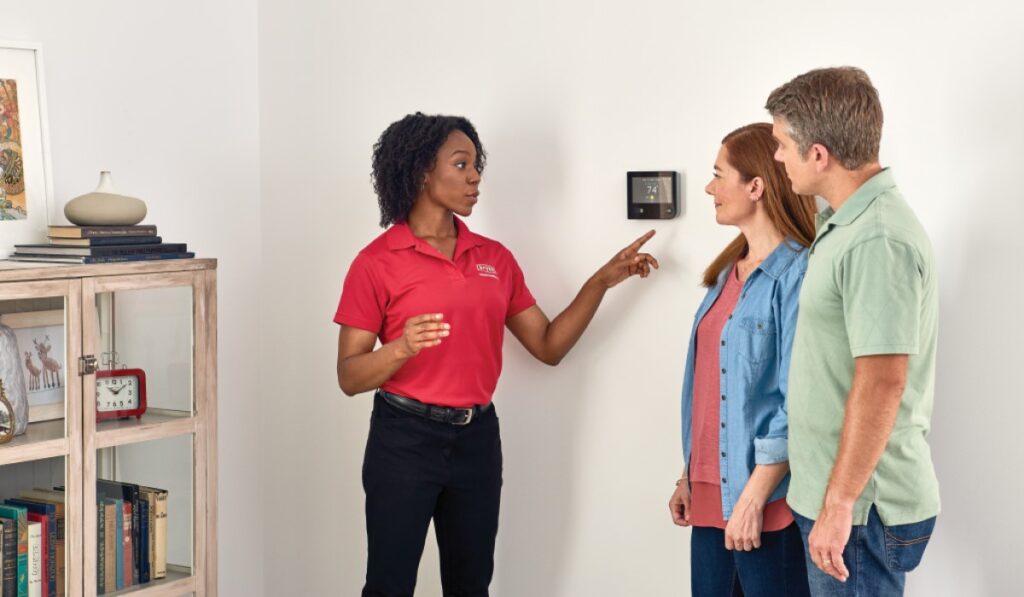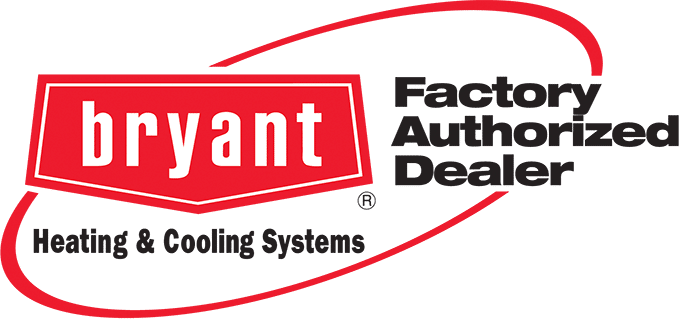
Improving your home’s energy efficiency is not only good for the environment but also for your wallet. By implementing energy-saving techniques, you can reduce your carbon footprint and lower your utility bills. This post will explore various strategies to enhance your home’s energy efficiency.
- Understanding Your Home’s Energy Consumption
- Improving Insulation and Air Sealing
- Optimizing Heating and Cooling Systems
- Optimizing Water Heater Efficiency
- Leveraging Renewable Energy
- Implementing Energy-Efficient Practices
- Taking Advantage of Canadian Tax Credits
Contact Service 1st for expert advice and assistance in improving your home’s energy efficiency.
Managing Your Home Energy Efficiency
1. Understanding Your Home's Energy Consumption
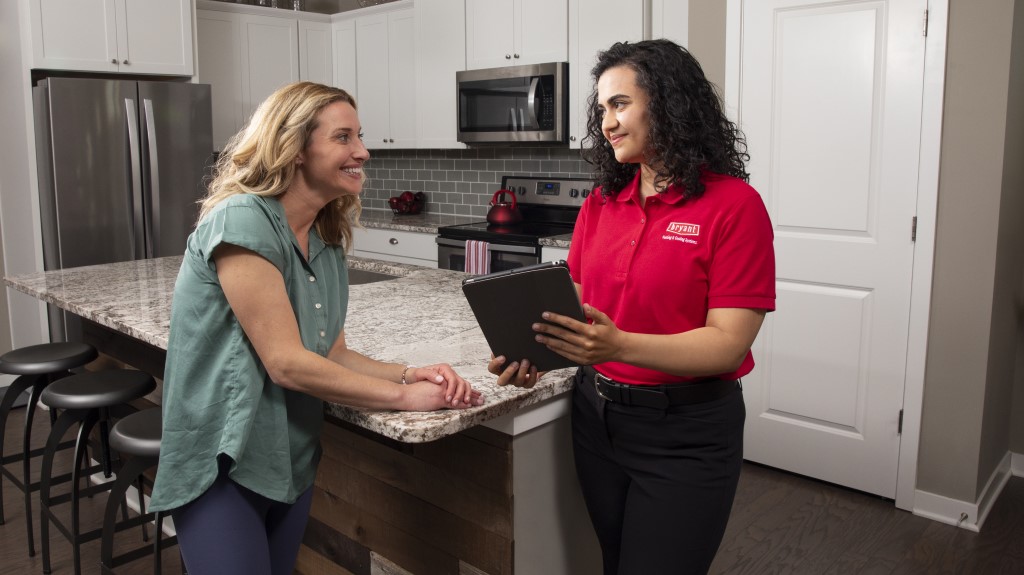
An energy audit will provide you with a detailed report outlining recommendations for improving your home energy efficiency.
To effectively improve your home’s energy efficiency, it’s essential to have a clear understanding of your current energy usage patterns. This section will explore various methods for monitoring and analyzing your home’s energy consumption, enabling you to identify areas for improvement and make informed decisions about energy-saving upgrades.
Home Energy Audit
A home energy audit is a comprehensive assessment that identifies areas of energy loss and inefficiency in your home. A certified energy auditor will conduct a thorough inspection, using specialized equipment to detect air leaks, measure insulation levels, and analyze your energy consumption patterns.
The audit will provide you with a detailed report outlining recommendations for improving your home’s energy efficiency. This information can help you prioritize upgrades and make informed decisions about where to invest your resources.
Monitoring Energy Consumption
Tracking your energy consumption is essential for understanding your home’s energy usage patterns. Most utility companies provide online tools or mobile apps that allow you to monitor your energy usage in real-time. By reviewing your consumption data, you can identify areas of high energy use and take steps to reduce it.
Smart Thermostats
Smart thermostats are advanced thermostats that can be controlled remotely and programmed to adjust your heating and cooling system based on your schedule and preferences. These devices can learn your habits and optimize your home’s temperature to save energy. Some smart thermostats even integrate with other smart home devices, allowing you to create customized automation scenarios.
2. Improving Insulation and Air Sealing
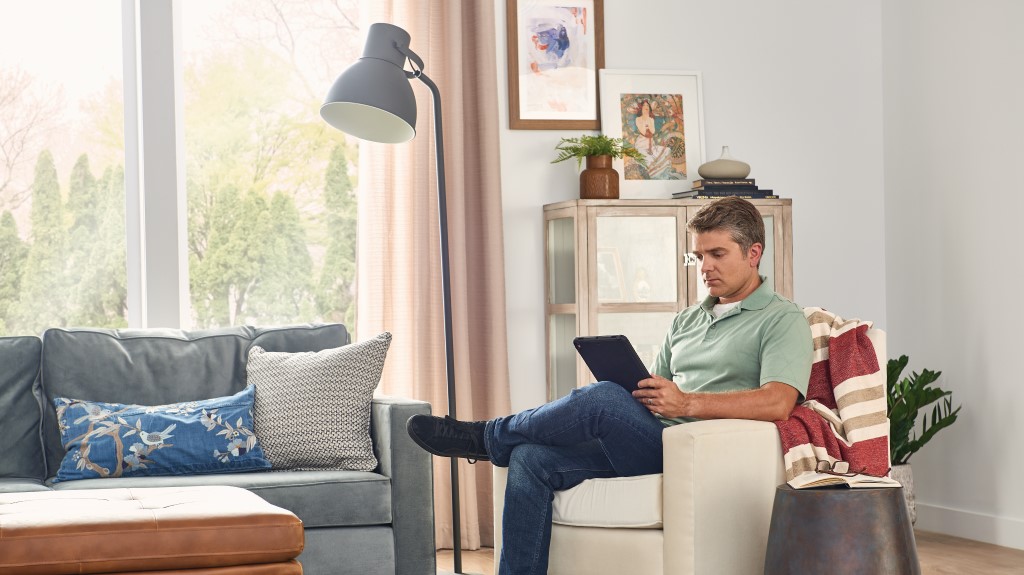
An energy audit will provide you with a detailed report outlining recommendations for improving your home energy efficiency.
Adequate insulation and proper air sealing are crucial for preventing heat loss and maintaining a comfortable indoor temperature. By addressing these areas, you can significantly reduce your energy consumption and lower your utility bills.
Insulation:
- Check your insulation levels: Ensure your attic, walls, and floors have sufficient insulation. Aim for R-values recommended for your region.
- Upgrade insulation: If your insulation is inadequate, consider upgrading to a higher R-value material.
- Seal air leaks: Air leaks can negate the effectiveness of insulation. Seal gaps around windows, doors, electrical outlets, and pipes to prevent drafts.
Air Sealing:
- Caulk and weatherstripping: Seal gaps around windows, doors, and baseboards with caulk and weatherstripping.
- Inspect ducts: Ensure your ductwork is properly sealed to prevent air leaks.
- Address attic and crawlspace leaks: Seal any gaps or holes in these areas to prevent heat loss.
Professional Assistance:
For complex insulation and air sealing projects, consider consulting with a qualified professional. They can assess your home’s needs and provide expert recommendations for improving energy efficiency.
3. Optimizing Heating and Cooling Systems

Regular maintenance of your HVAC system will improve you home energy efficiency.
Your heating and cooling systems play a significant role in your home’s energy consumption. By optimizing these systems, you can improve efficiency and reduce your utility bills.
Regular Maintenance:
- Schedule annual tune-ups: Regular maintenance ensures your systems are operating at peak efficiency.
- Clean or replace air filters: A dirty air filter can restrict airflow and reduce efficiency.
- Inspect and clean outdoor units: Remove debris and obstructions to improve performance.
Upgrades and Replacements:
- Consider upgrading to a high-efficiency system: Newer models often offer improved energy efficiency and performance.
- Optimize thermostat settings: Program your thermostat to adjust temperatures based on your schedule and preferences.
- Consider smart thermostats: Smart thermostats can learn your habits and optimize your heating and cooling to save energy.
Additional Tips:
- Seal ducts: Ensure your ductwork is properly sealed to prevent air leaks and improve efficiency.
- Insulate hot water pipes: Reduce heat loss and save energy.
- Use ceiling fans to circulate air: This can help reduce reliance on your HVAC system.
By optimizing your heating and cooling systems, you can significantly improve your home’s energy efficiency and lower your utility bills.
4. Optimizing Water Heater Efficiency
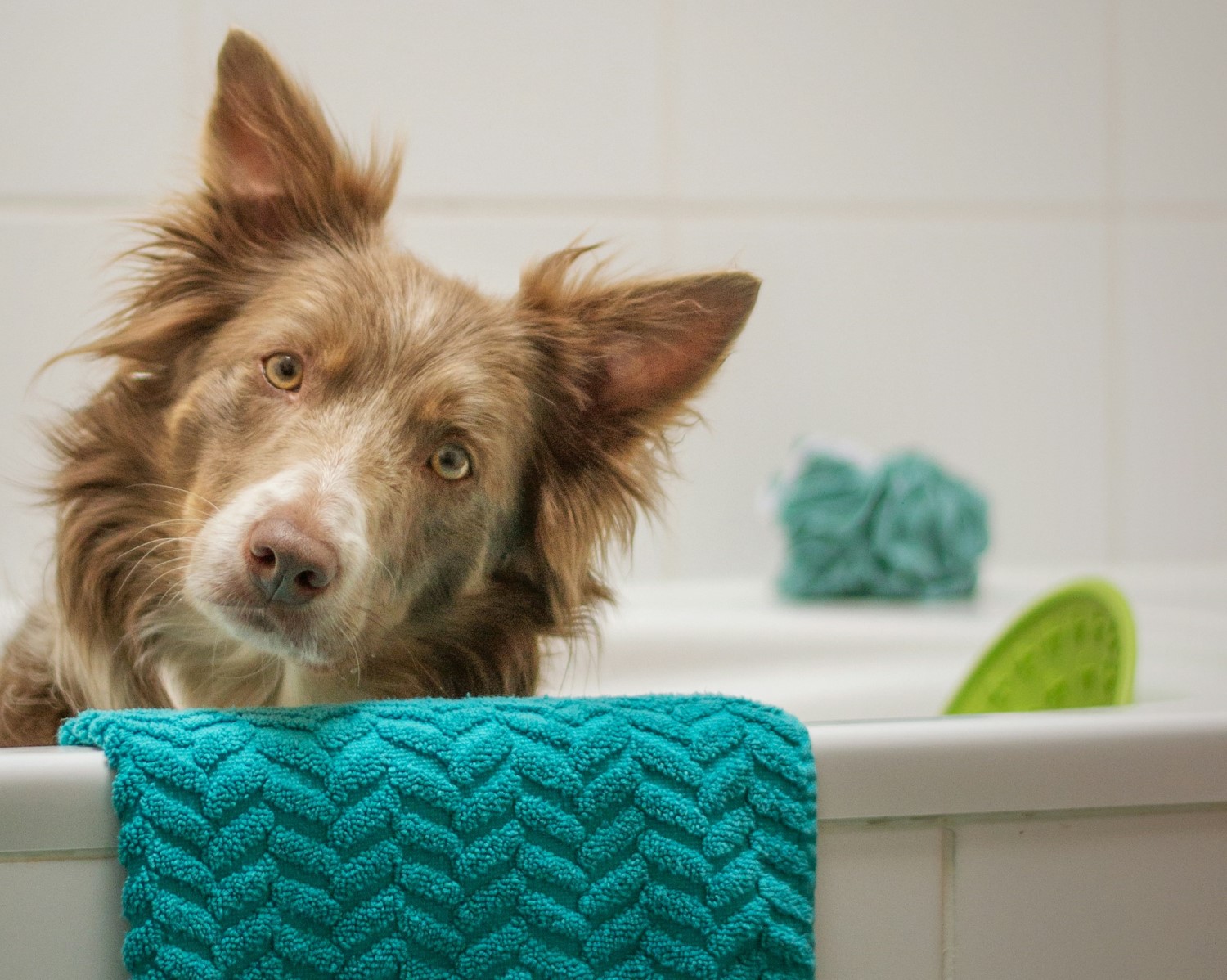
Set your water heater to a temperature of 120°F (49°C) or lower for better home energy efficiency.
In addition to heating and cooling systems, your water heater also contributes to your home’s energy consumption. Here are some tips for improving water heater efficiency:
Water Heater Energy Saving Tips:
- Insulate your water heater: Wrap your water heater in an insulating blanket to reduce heat loss.
- Lower the temperature: Set your water heater to a temperature of 120°F (49°C) or lower to save energy.
- Consider a tankless water heater: Tankless water heaters heat water on demand, eliminating standby heat loss and providing endless hot water. They are generally more energy-efficient than traditional storage water heaters.
- Repair leaks promptly: Leaky faucets and pipes can waste a significant amount of water and energy.
- Take shorter showers: Reducing shower time can save energy and water.
By implementing these strategies, you can optimize your water heater’s efficiency and reduce your energy consumption.
5. Leveraging Renewable Energy
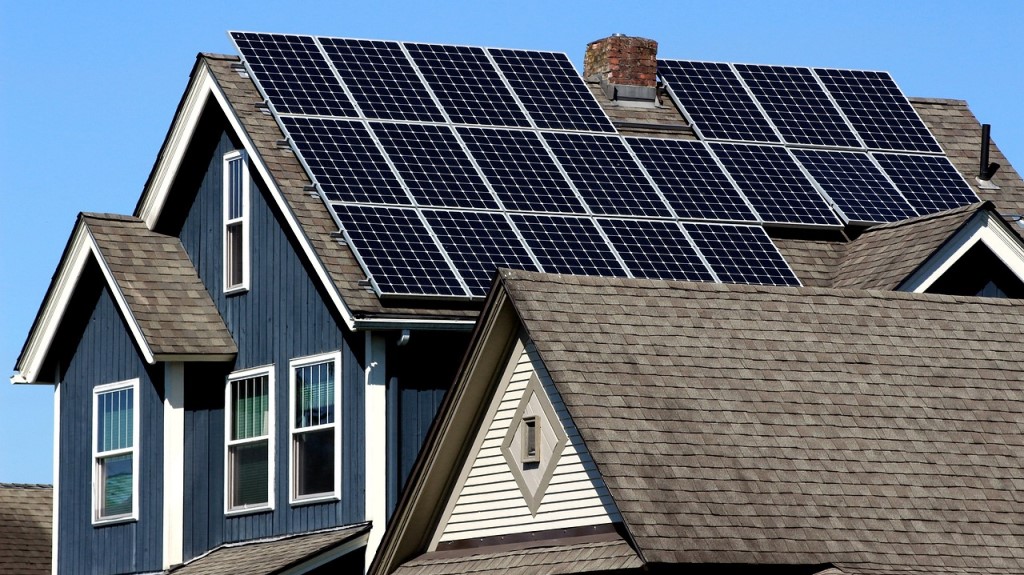
Convert sunlight into electricity for better home energy efficiency.
Harnessing renewable energy sources can significantly reduce your reliance on traditional energy sources and lower your carbon footprint. Here are some popular options to consider:
Solar Energy:
- Solar panels: Convert sunlight into electricity, providing a clean and renewable source of energy for your home by installing solar panels on your roof or elsewhere on your property.
- Solar water heaters: Use solar energy to heat your water, reducing your reliance on traditional water heaters.
Other Renewable Options:
- Wind turbines: Generate electricity from wind power, if you live in an area with consistent wind.
- Geothermal energy: Utilize the earth’s heat to provide geothermal heating and cooling for your home.
Government Incentives:
Consulting with Experts:
6. Implementing Energy-Efficient Practices
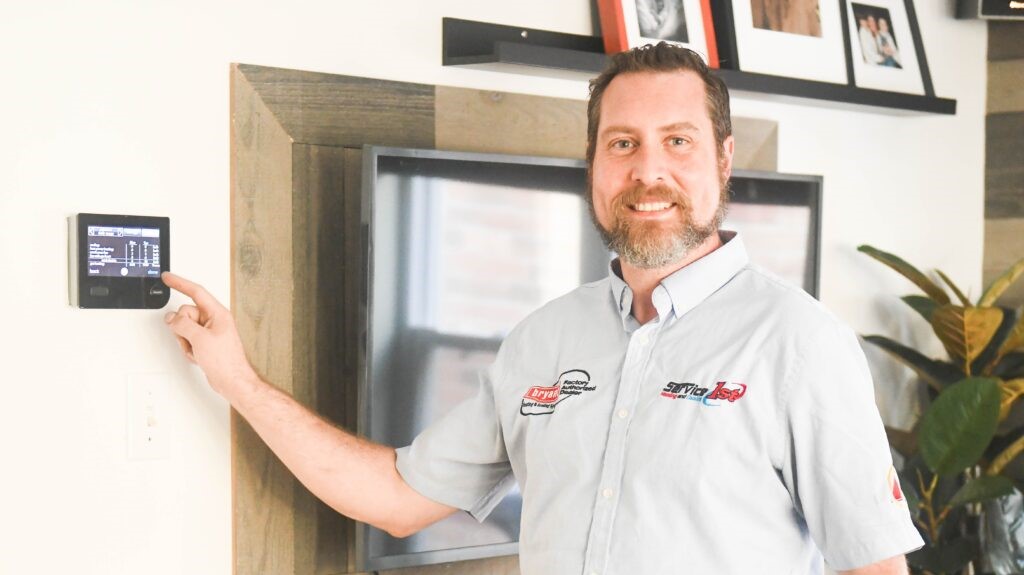
Lower your thermostat during the winter and raise it during the summer
In addition to upgrading your major systems, there are many simple and cost-effective steps you can take to improve your home’s energy efficiency. Here are some practical tips:
Behavioral Changes:
- Adjust thermostat settings: Lower your thermostat during the winter and raise it during the summer to optimize heating and cooling.
- Reduce water heating: Take shorter showers, fix leaky faucets, and adjust your water heater temperature.
- Unplug electronics: Many electronics continue to draw power even when turned off. Unplug them when not in use to save energy.
Efficient Appliances and Lighting:
- Replace outdated appliances: Upgrade to energy-efficient models with ENERGY STAR certification.
- Use LED lighting: LED bulbs consume significantly less energy than traditional incandescent bulbs.
- Turn off electronics: Unplug electronics when not in use to reduce phantom energy consumption.
Additional Tips:
- Install weatherstripping and caulking: Seal air leaks around windows, doors, and electrical outlets.
- Insulate hot water pipes: Reduce heat loss and save energy by insulating your water pipes.
- Use curtains or blinds to control sunlight: Keep your home cooler in the summer and warmer in the winter by closing your window treatments to keep out the heat on hot days and opening them to let in the sunshine on cold days.
- Consider a programmable thermostat: Automate your heating and cooling system to save energy by installing a thermostat that you can program.
7. Taking Advantage of Canadian Tax Credits
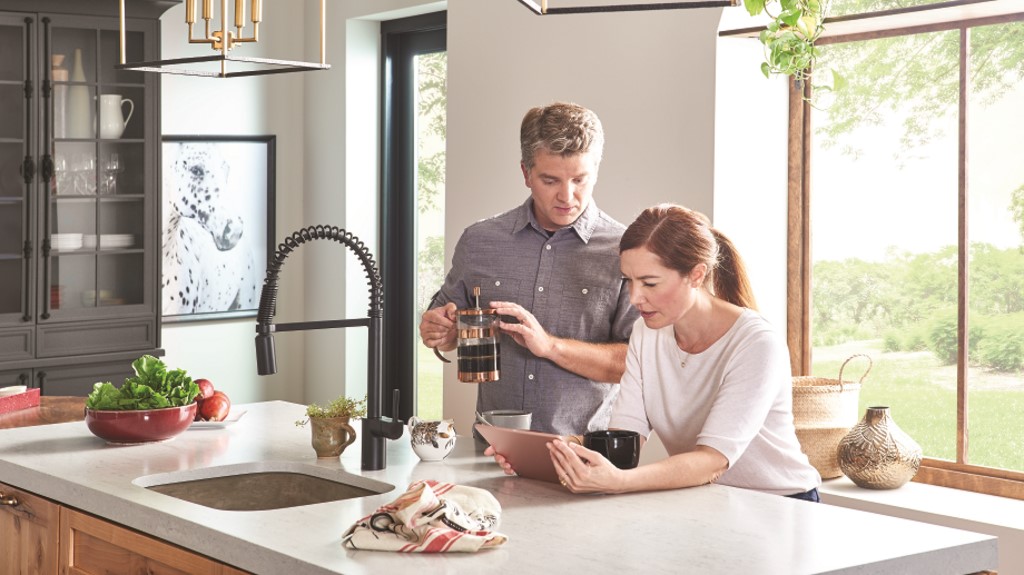
Tax credits or rebates can significantly offset the cost of upgrades and make it more affordable to improve your home energy efficiency.
Many Canadian provinces and territories offer tax credits and incentives to encourage homeowners to adopt energy-efficient practices and technologies. These credits can significantly offset the cost of upgrades and make it more affordable to improve your home’s energy efficiency.
Here are some common tax credits available in Canada (please note that specific eligibility criteria and amounts may vary by province):
- Canada Greener Homes Grant: The Canada Greener Homes Grant provides grants of up to $5,000 for eligible energy-efficient retrofits, such as insulation, windows, doors, and renewable energy systems.
- Clean Buildings Tax Credit: This tax credit is offered by the government of British Columbia. It is available for qualifying retrofits that improve the energy efficiency of commercial and multi-unit residential buildings.
- Provincial and Territorial Incentives: Many provinces and territories offer additional tax credits or rebates for energy-efficient upgrades.
Important Note:
Rely On the Experts at Service 1st for All Your Home Heating and Cooling Needs
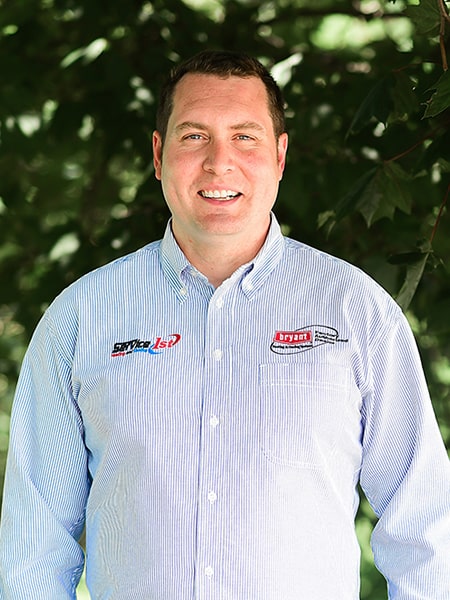

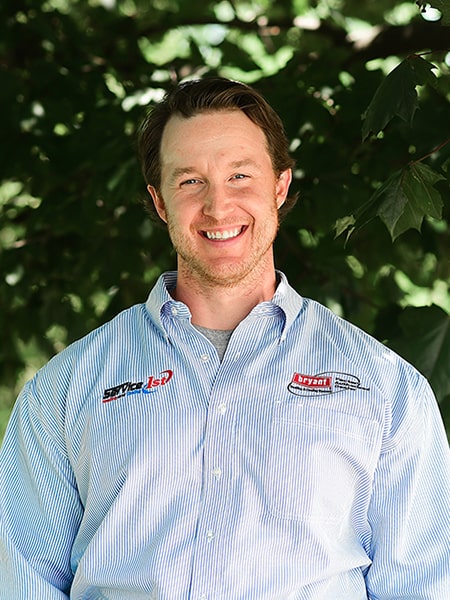
If you are looking for the best home heating and cooling experts in the Cambridge region, talk to the experienced team of HVAC professionals at Service 1st. We value professionalism, honesty, and a quality work. All of our technicians are highly trained and respectful of our clients’ homes. Whether you need maintenance, repairs, or HVAC replacements, we can help.
We have been serving homeowners in Cambridge and the surrounding areas for over 30 years and have a proven record of excellence. Whether it’s time to replace your air conditioner now or you want to learn more about what unit to buy in the future, we can help.
We are a locally owned and operated business that prides itself on the highest quality work and installation of the highest quality products. We have received the prestigious Circle of Champions award from Bryant – an honour that highlights our commitment to quality, leadership, and excellence in the HVAC industry. We are an Elite Bryant Factory Authorized Dealer and offer our customers the highest quality products and services.



“Chris was absolutely amazing!! He took the time to explain exactly what my issue was with my furnace. Very knowledgeable and very patient in his explanations. Service 1st you have a valuable team player. Will definitely recommend Service 1st to family and Friends!! I found all service technicians very informative and very professional. I had the ducts in my house cleaned, my gas fireplace tuned up and a whole new furnace and heat pump installed. I would highly recommend Service 1st!!”
